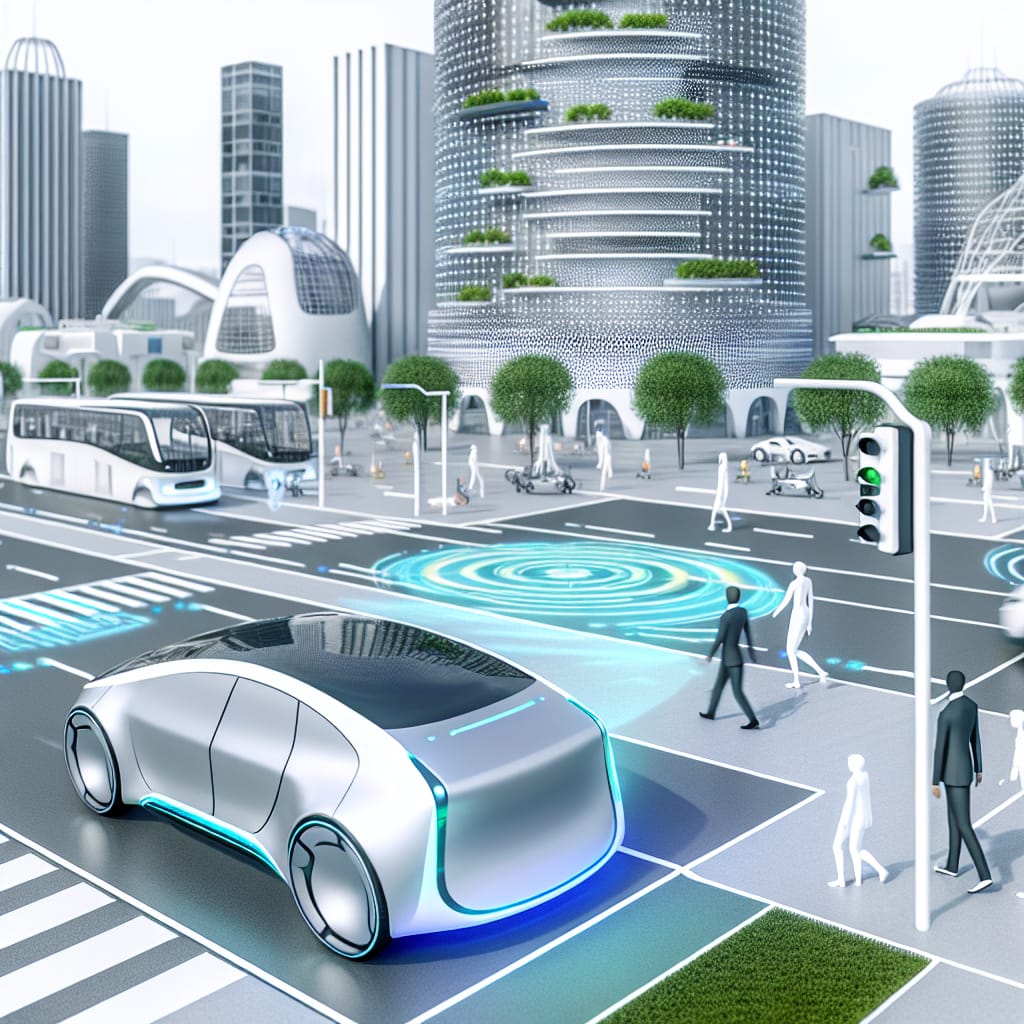AI in Transportation: Advanced Trends Shaping 2025
Table of Contents
Autonomous Vehicles: The Future of Transport
Autonomous vehicles, powered by AI, are on the brink of transforming transportation on a global scale. These vehicles use sophisticated machine learning algorithms and sensors to navigate and operate without human intervention. Companies like Tesla, Waymo, and Uber are at the forefront, testing and refining autonomous driving technologies.
Real-world implementation is visible in projects such as Waymo’s self-driving taxi service in Phoenix, Arizona, showcasing AI’s potential to enhance convenience and safety. The AI systems in these vehicles learn from vast datasets, continually improving driving algorithms. Such advancements highlight the critical role AI plays in vehicle automation, presenting a future where human drivers may become obsolete.
AI in Traffic Management
AI-driven solutions are reshaping traffic management, aiming to minimize congestion and enhance urban mobility. By leveraging real-time data from connected vehicles, traffic cameras, and sensors, AI systems can optimize traffic signals and predict traffic flow patterns.
For instance, Beijing has implemented AI-based traffic management, resulting in a 20% reduction in travel time for commuters. The technology utilizes machine learning models to predict congestion and adjust traffic signals dynamically, significantly improving traffic efficiency. AI’s integration into traffic systems exemplifies its pivotal role in creating smarter, more responsive urban infrastructures.
AI for Logistics & Supply Chain
AI’s application in logistics and the supply chain is revolutionizing how goods are transported, managed, and delivered. AI-driven predictive analytics optimize routes, reduce delivery times, and enhance overall efficiency. Companies like Amazon and DHL use AI to streamline operations and minimize costs.
One notable example is Amazon’s use of AI in its warehouses, employing robotic systems to manage inventory and fulfill orders efficiently. These AI solutions enable real-time tracking and demand forecasting, ensuring seamless supply chain operations. As AI technology continues to evolve, its impact on logistics and supply chains will become even more profound, driving greater efficiency and customer satisfaction.
Impact of AI on the Environment
AI technologies in transportation are contributing positively to environmental sustainability. AI can optimize fuel consumption and reduce emissions through efficient route planning and traffic management. Autonomous vehicles, being primarily electric, promise significant reductions in carbon footprints.
Collaboration between tech firms and environmental organizations is crucial to harness AI for eco-friendly solutions. The integration of AI in electric vehicle technology is an example, where AI algorithms extend battery life and enhance energy efficiency. These initiatives showcase AI’s potential to foster a greener future for the transportation industry.
Challenges and Opportunities
While AI offers immense benefits to transportation, it also presents challenges such as regulatory hurdles, data privacy concerns, and ethical issues. Ensuring safety and public trust in autonomous vehicles requires robust frameworks and policies.
However, these challenges also create opportunities for innovation and improvement. By addressing these hurdles, the transportation industry can fully capitalize on AI’s capabilities. The continuous advancement in AI algorithms and cloud computing will play a significant role in overcoming these obstacles and unlocking the full potential of AI in transportation.
FAQ
How does AI improve transportation efficiency?
AI enhances transportation efficiency through predictive analytics, real-time data processing, and optimization algorithms, significantly reducing delays and operational costs.
What are the ethical concerns of autonomous vehicles?
Ethical concerns include decision-making in critical situations, data privacy, job displacement, and the need for transparency in AI algorithms.
Are AI technologies in transportation sustainable?
Yes, AI technologies contribute to sustainability by optimizing resource usage, reducing emissions, and promoting greener alternatives like electric autonomous vehicles.
Conclusion
The integration of AI in transportation heralds a new era of innovation, efficiency, and environmental responsibility. As autonomous vehicles and AI-driven systems continue to evolve, the potential for positive societal impact grows exponentially. Data science professionals and AI enthusiasts have the exciting opportunity to partake in this transformative journey, shaping sustainable transportation solutions for the future.
Further exploration and investment in AI technologies will be pivotal. Stay informed about emerging trends by subscribing to our newsletter and exploring related content about AI advancements on our website. Additionally, examine external analyses such as MIT Technology Review to gain broader perspectives on technological innovations.



